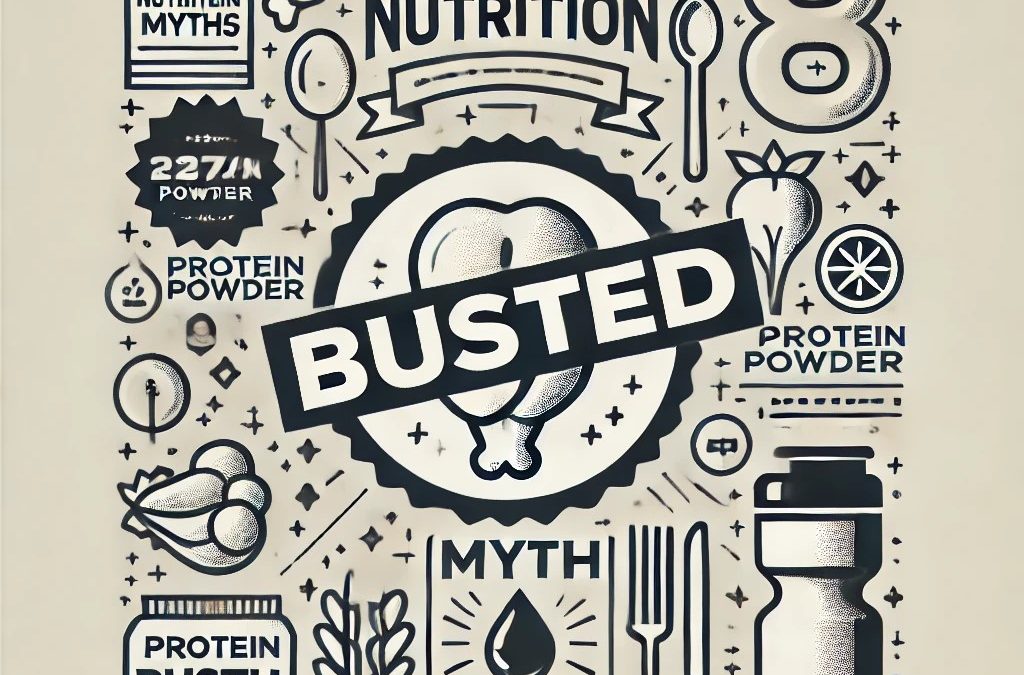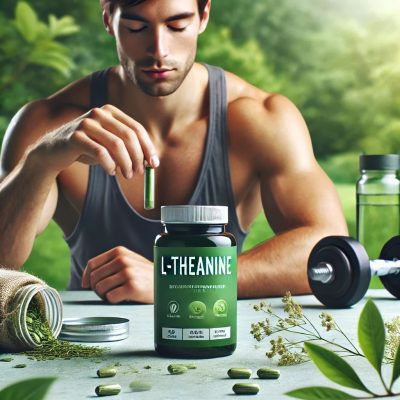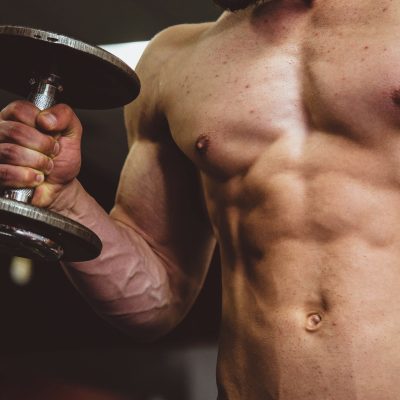
Debunking Common Nutrition Myths in Fitness
When it comes to fitness and nutrition, myths and misconceptions are everywhere. From fad diets to outdated advice, it can be difficult to separate fact from fiction. If you’re serious about your fitness journey, understanding the truth about how nutrition impacts your performance and results is crucial. In this post, we’ll debunk some of the most common nutrition myths in fitness and set the record straight so you can focus on what really works.
1. Myth 1: Carbs Make You Gain Fat
The Truth: Carbohydrates have long been vilified, with many fitness enthusiasts avoiding them to prevent weight gain. However, carbs themselves are not the enemy—excess calories are. Carbs are a primary source of energy for your body, especially during exercise. In fact, complex carbohydrates like whole grains, fruits, and vegetables are essential for providing sustained energy, supporting recovery, and improving performance.
- The takeaway: Carbs don’t automatically make you fat. It’s all about consuming the right type and quantity based on your activity level and goals. Focus on whole, unprocessed carbs and adjust your intake according to your fitness needs.
2. Myth 2: You Need to Eat Protein Immediately After Working Out (or You’ll Miss the “Anabolic Window”)
The Truth: The idea that there is a very short window after exercise (usually said to be around 30 minutes) when you must consume protein for maximum muscle growth is widely misunderstood. While protein intake is important after a workout to help repair and build muscles, research shows that this “anabolic window” is much wider than previously thought. In fact, as long as you consume sufficient protein throughout the day, your body will have what it needs to recover and build muscle.
- The takeaway: Don’t stress about downing a protein shake immediately after your workout. Focus on eating balanced meals with protein throughout the day to support muscle recovery.
3. Myth 3: Eating Fat Makes You Fat
The Truth: Dietary fat has been demonized for years, leading many people to believe that eating fat directly leads to body fat gain. In reality, fats are an essential macronutrient that plays a key role in hormone production, brain function, and the absorption of vitamins. The key is to choose healthy fats, such as those from avocados, nuts, seeds, olive oil, and fatty fish, rather than relying on trans fats or excessive saturated fats.
- The takeaway: Eating fat doesn’t make you fat. Incorporating healthy fats into your diet in moderation can actually support overall health, enhance your workouts, and help with satiety.
4. Myth 4: You Need Supplements to Build Muscle
The Truth: While supplements like protein powder, creatine, and branched-chain amino acids (BCAAs) can be useful tools for some people, they are not necessary to build muscle or improve performance. Whole foods should be your primary source of nutrition, as they provide a broader range of nutrients than supplements. In most cases, if you’re eating a well-balanced diet with enough protein, carbs, and healthy fats, you can build muscle and achieve your fitness goals without the need for supplements.
- The takeaway: Supplements are convenient, but they’re not essential for muscle growth. Focus on eating a nutrient-dense diet, and consider supplements only if you’re struggling to meet your nutrition needs through food.
5. Myth 5: You Have to Eat Multiple Small Meals to Boost Your Metabolism
The Truth: The idea that eating 5-6 small meals a day “stokes the metabolic fire” and keeps your metabolism elevated is a popular myth in the fitness world. In reality, the number of meals you eat has little to do with your metabolism. What matters more is your total daily calorie intake. Whether you eat three larger meals or five smaller ones, it’s the overall quantity and quality of the food you eat that determines your energy levels and fitness progress.
- The takeaway: Meal frequency is a personal preference. Whether you prefer eating smaller, frequent meals or larger meals less often, focus on your overall calorie and macronutrient intake to reach your goals.
6. Myth 6: You Can’t Build Muscle on a Plant-Based Diet
The Truth: Many people believe that building muscle on a plant-based diet is impossible because plant foods often contain lower amounts of protein than animal products. However, it is entirely possible to build muscle while following a plant-based diet, as long as you consume enough protein and include a variety of plant-based protein sources. Foods like lentils, beans, tofu, tempeh, quinoa, and plant-based protein powders can help you meet your protein needs.
- The takeaway: You can absolutely build muscle on a plant-based diet. The key is to include a variety of protein sources and pay attention to your overall protein intake.
7. Myth 7: Detox Diets and Juice Cleanses Will Help You Lose Weight and Improve Performance
The Truth: Detox diets and juice cleanses have gained popularity as a quick fix for weight loss and “resetting” the body. However, your body already has an efficient detox system in place—your liver and kidneys do an excellent job of eliminating toxins without the need for extreme diets. Furthermore, juice cleanses often deprive you of essential nutrients like protein and healthy fats, leaving you feeling tired and sluggish, which can negatively impact your workouts.
- The takeaway: Skip the detoxes and cleanses. Instead, focus on eating a balanced, whole-foods diet with plenty of water to support your body’s natural detoxification processes.
8. Myth 8: More Protein Equals More Muscle
The Truth: Protein is important for muscle growth, but eating excessive amounts won’t lead to bigger muscles. Your body can only use a certain amount of protein for muscle repair and growth, and consuming beyond that won’t result in additional muscle gain. In fact, too much protein can lead to other issues, such as excess calorie consumption or even digestive problems. The optimal protein intake for muscle growth is around 1.6 to 2.2 grams per kilogram of body weight.
- The takeaway: More protein doesn’t always mean more muscle. Focus on meeting your daily protein needs based on your activity level and fitness goals, and balance it with carbs and fats for optimal performance.
9. Myth 9: Fasted Workouts Burn More Fat
The Truth: The idea of working out on an empty stomach to burn more fat has gained traction, but the reality is more complex. While fasted workouts may lead to increased fat oxidation during the workout itself, the total fat loss over time is not significantly different compared to fed workouts. Furthermore, fasted workouts may negatively impact your performance and muscle mass if you’re not properly fueled.
- The takeaway: If you prefer fasted workouts and feel good doing them, go ahead—but don’t expect them to drastically improve fat loss. What matters most for fat loss is your overall calorie balance and exercise consistency.
10. Myth 10: Cheat Meals Will Ruin Your Progress
The Truth: One cheat meal won’t destroy your progress—just like one healthy meal won’t magically fix your diet. What matters most is consistency over time. Allowing yourself the occasional indulgence can actually help you stay on track in the long run, as it reduces feelings of deprivation and helps you maintain balance.
- The takeaway: Don’t stress about an occasional cheat meal. As long as you’re consistent with your nutrition and exercise plan, a treat here and there won’t derail your progress.
Conclusion: Focus on the Facts
In the world of fitness, myths and misconceptions can hold you back from reaching your full potential. By debunking these common nutrition myths, you can take a smarter approach to fueling your body and achieving your goals. Remember, balance and consistency are key when it comes to fitness and nutrition.
What fitness or nutrition myths have you encountered? Share your experiences in the comments, and let’s continue to bust these myths together!











